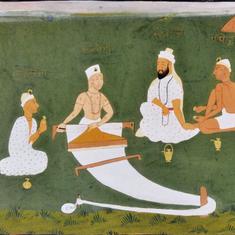Move to remove Arabic, Mahal from Lakshadweep schools ‘deeply disturbing’: Kerala minister
The Union Territory’s administration has issued a directive to remove the two languages under the 2023 National Curriculum Framework.

The Lakshadweep administration’s decision to remove Arabic and Mahal languages from the school curriculum in the Union Territory is “deeply disturbing”, said Kerala Education Minister V Sivankutty on Wednesday, according to PTI.
On May 14, the Education Department of the Union Territory issued a directive on the removal of the two languages under the 2023 National Curriculum Framework, which is a set of guidelines for teaching practices, textbooks and syllabi in Indian schools.
The framework is a key part of the 2020 National Education Policy.
The Mahal language, also known as the Maliku dialect, is a variant of Dhivehi, which is the official language of the Maldives. It retains elements of older Maldivian but also has Malayalam influences.
The May 14 directive stated that both Malayalam and English medium schools in Minicoy, the southernmost island in the Lakshadweep archipelago, would now offer Malayalam and English as the first and second languages, with Hindi replacing Mahal and Arabic as the third language, Newslaundry reported
The decision to remove the two languages from the school curriculum had led to protests in the Union Territory.
On Wednesday, Sivankutty stated that the move to remove the languages, taken “under the guise of implementing the National Education Policy”, contradicted the Union government’s commitment to promoting mother tongues and regional diversity in education, PTI reported.
The Union government was also violating the constitutional rights of linguistic minorities by denying Lakshadweep’s children the opportunity to learn their language, he claimed, adding that the decision undermined the pluralism and inclusiveness that defined the nation.
“Language is not merely a medium of communication,” the news agency quoted Sivankutty as saying. “It is a carrier of identity, history, and culture. The systematic erasure of native languages through education policy is nothing less than an assault on the cultural fabric of our society.”
He also stated that education was a subject in the Concurrent List of the Constitution, adding that both the Union and state governments had a role in its governance.
“Any attempt by the Union government to unilaterally impose educational directives that marginalise local languages and cultures is a clear case of overreach and must be resisted,” he said.
“Kerala expresses solidarity with the people of the island,” The Indian Express quoted Sivankutty as saying. “All democratic forces, academic fraternity and organisations in the education sector should raise their voice against this linguistic injustice and urge the authorities to revoke the decision.”
The minister also noted that the Kerala government had already raised concerns about the National Education Policy and the PM Schools for Rising India, or PM SHRI, scheme.
“Our decision to oppose its implementation in the state was based on precisely such apprehensions –that centralised policies would override regional, linguistic, and cultural realities in the name of standardisation,” PTI quoted him as saying.
The PM SHRI is a centrally-sponsored scheme that aims to upgrade the infrastructure of schools managed by central, state or regional bodies.
However, to avail the scheme’s benefits, state governments must first sign a memorandum of understanding with the Union government to implement the 2020 National Education Policy.
The National Education Policy proposes major changes to the curricular structure for school education, claims to promote flexibility in choosing academic streams and emphasises using the mother tongue as a key medium of instruction in primary school, among other measures.
The policy has been criticised by sections of the academic community for encouraging the privatisation of public institutions. It was also criticised for creating numerous “exit” options for students, which opponents said would encourage dropouts.
Some southern states, like Tamil Nadu, have also repeatedly expressed opposition to the three-language formula in the National Education Policy. The state government said it will not change its decades-old two-language policy of teaching students Tamil and English.
The three-language formula refers to teaching students English, Hindi and the native language of a state. It was introduced in the first National Education Policy in 1968 and was retained in the new policy introduced in 2020.









